
Laura Sanders reports on neuroscience for Science News. She wrote Growth Curve, a blog about the science of raising kids, from 2013 to 2019 and continues to write about child development and parenting from time to time. She earned her Ph.D. in molecular biology from the University of Southern California in Los Angeles, where she studied the nerve cells that compel a fruit fly to perform a dazzling mating dance. Convinced that she was missing some exciting science somewhere, Laura turned her eye toward writing about brains in all shapes and forms. She holds undergraduate degrees in creative writing and biology from Vanderbilt University in Nashville, where she was a National Merit Scholar. Growth Curve, her 2012 series on consciousness and her 2013 article on the dearth of psychiatric drugs have received awards recognizing editorial excellence.

Trustworthy journalism comes at a price.
Scientists and journalists share a core belief in questioning, observing and verifying to reach the truth. Science News reports on crucial research and discovery across science disciplines. We need your financial support to make it happen – every contribution makes a difference.
All Stories by Laura Sanders
-
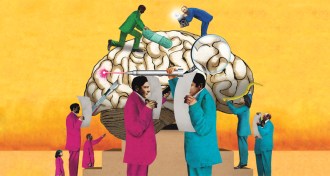 Neuroscience
NeuroscienceBrain shot
Deciphering how the brain’s circuitry produces thought and behavior is an ambitious and enticing goal on the scale of the Apollo Program or the Human Genome Project. But the neuroscientists involved in a new federal effort have many challenges ahead.
-
 Neuroscience
NeuroscienceDiuretic may treat autism, study in rodents suggests
Drug that lowers chloride levels in brain cells staves off symptoms in mice and rats.
-
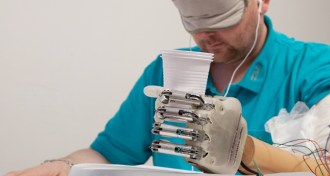 Neuroscience
NeuroscienceProsthetic provides sense of touch to man who lost hand
A new prosthetic hand restores a sense of touch by stimulating nerves in the arm.
-
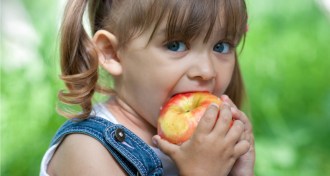 Health & Medicine
Health & MedicineShould your kid eat organic? The answer is complicated
The science behind kids’ pesticide exposure is complicated and patchy.
-
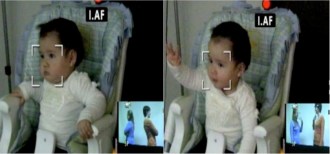 Health & Medicine
Health & MedicineYour baby knows who your real friends are
Infants are surprisingly good judges of who ought to be friendly to each other.
-
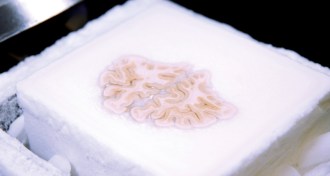 Neuroscience
NeuroscienceFamous brain surgery patient H.M. retained a chunk of hippocampus
The patient's amnesia was probably due to the loss of other regions and neural connections.
-
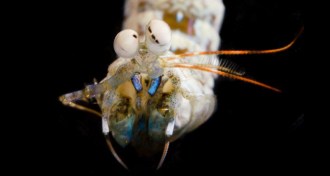 Animals
AnimalsMantis shrimp’s bizarre visual system may save brainpower
The mantis shrimp sees each color separately with one of a dozen kinds of specialized cells, a system that may help the animal quickly see colors without a lot of brainpower.
-
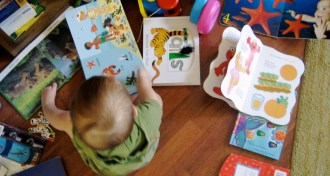 Health & Medicine
Health & MedicineHow to read a book to your baby
To help your baby get the most out of story time, turn the story into a conversation, not a monologue.
-
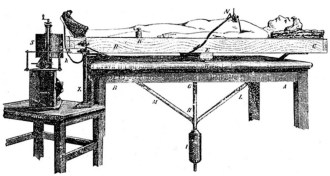 Neuroscience
NeuroscienceThinking hard weighs heavy on the brain
A balance measures the tiny changes in force due to blood flow behind a person's thoughts.
-
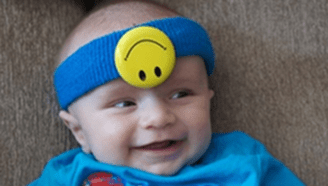 Health & Medicine
Health & MedicineBaby-cam captures an infant’s world
What do babies see all day? Faces. Lots of faces.
-
 Neuroscience
NeuroscienceCaffeine may improve memory
Taking the stimulant after learning new information boosted people’s recall the next day.
-
 Neuroscience
NeuroscienceA schizophrenia drug turns on protein factories in cells
Haloperidol reshapes neurons, which might explain how the medicine works.